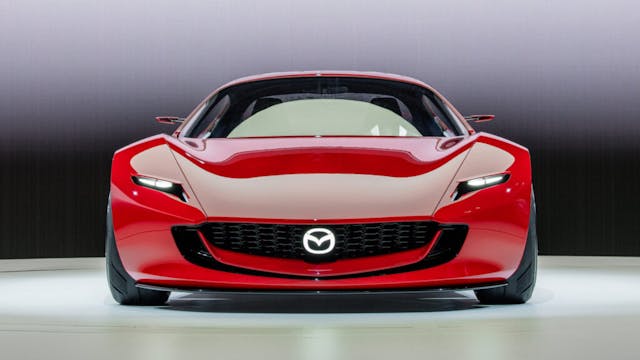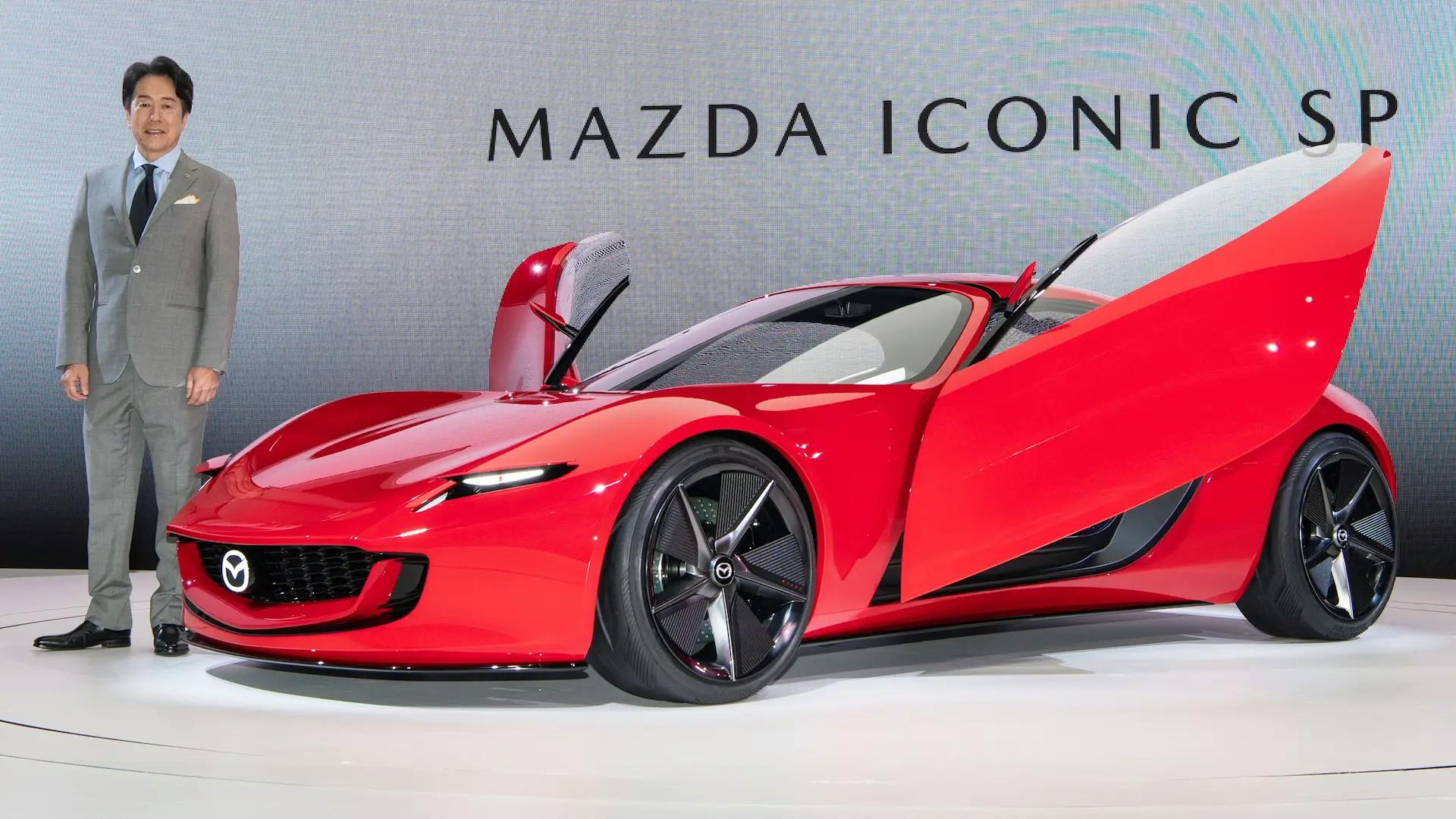Media | Articles
It Sure Seems Like Mazda Might Actually Build the Iconic SP Concept
How many times throughout your automotive fandom have you seen images of some breathtaking concept that stops you dead in your tracks, gets your hopes up, and then leaves you high and dry down the road? It feels like this is at least a once-a-quarter experience for most of us these days, and to be honest, we reflexively put Mazda’s drop-dead gorgeous Iconic SP Concept into that bucket when we first saw it at the 2023 Japan Mobility Show.
But a new piece from Inside Mazda, which spoke with Naohito Saga, executive officer at Mazda’s R&D strategy planning division, and Masashi Nakayama, general manager of the design division, has us daring to dream. Both executives seem intent on making some form of the Iconic SP a reality.

“This concept is not just one of those empty show cars,” said Nakayama. “It’s been designed with real intent to turn into a production model in the not-so-distant future.”
Saga expanded on that sentiment, dangling even more red meat. “Standing by the car, you should be able to picture what sort of engine would be housed under the bonnet,” he said. “That’s how committed we were to crafting this concept car. The more time you spend looking at it, the more the car will reveal to you.”

Of course, Saga seems to be hinting at rotary power. In May of this year, Mazda, Subaru, and Toyota announced a collaborative effort to develop a new high-tech family of internal combustion engines for future models. The new family of engines will be able to run on carbon-neutral (CN) fuels, according to the announcement, and will be the backbones for electrified drivetrains of some sort—hybrid or EV with range extender.
Marketplace
Buy and sell classics with confidence

Lest you imagine a common engine block pushed in different directions by each automaker, however, each of the brands said the development improvements brought about by the collaboration would enable the creation of signature engines that “not only represent their respective brands but also cater to their customer’s unique needs and preferences.”
Mazda’s engines of interest were indeed rotaries—a single- and two-rotor setup where the compact nature of the engine served as a range-extender for an EV. Mazda currently uses a rotary engine as a range-extender in the MX-30, a so-so subcompact EV that hasn’t really caught on here in the States.

And while a report earlier this year based on patent filings in Japan appeared to state that these new rotary engines could be the main source of motivation for something like the Iconic SP, this Inside Mazda piece is a bit murky on the particulars. “Mazda’s innovative rotary engine is highly scalable, running on fuels and generating electricity from carbon-neutral sources,” the piece said. “A combination of a dual-rotor rotary engine and an EV system provide the Mazda Iconic SP with a maximum output of 370 ps,” (roughly 364 horsepower).
If you look at this from a skeptic’s standpoint, it seems wild to imagine Mazda placing this rotary engine in service of anything other than electrification. But if you want an optimist’s approach—and we always welcome that—Mazda didn’t outright dismiss the possibility that the rotary could turn some sort of driveshaft to the rear wheels.

We’re not sure exactly which way the powertrain particulars will fall, but we’ll allow this: There certainly seems to be internal momentum within Mazda to get this stunning machine to the showroom floor, in some form or fashion. We’ll use our enthusiasm in the near-term to root on that possibility.









Rotary powered or some version of the inline 6 would be great to me.
I have had two Miatas, and I love the new design, and most likely would love to own one, but only if it comes with a fuel engine, I don’t care much for electric power cars.
Corvette moving to mid-engine (and becoming very ugly in the process) has created market-space for a $50k-$100k front-engined sports car. In a US-market otherwise dominated by SUVs, news of a new sports car is optimistic.
Mazda has also owned the small convertible market (Miata) for a while, so they might know exactly what to do here (e.g., $50k-$100k, fast, not ugly, front-engined coupe)…though market-positioning is unclear here. The Supra should have filled this void, but being built-by-BMW (as well as the fake vents and no targa top) caused it to be a “miss”.
Yeah, paddle shift??? not while my left leg and right arm still work.
Take the fun out of driving and the car won’t sell no matter how pretty it is
Very attractive design! Rear haunches suggest a VERY highly refined Bill Thomas Cheetah from the ‘late ’60’s. Build it!!